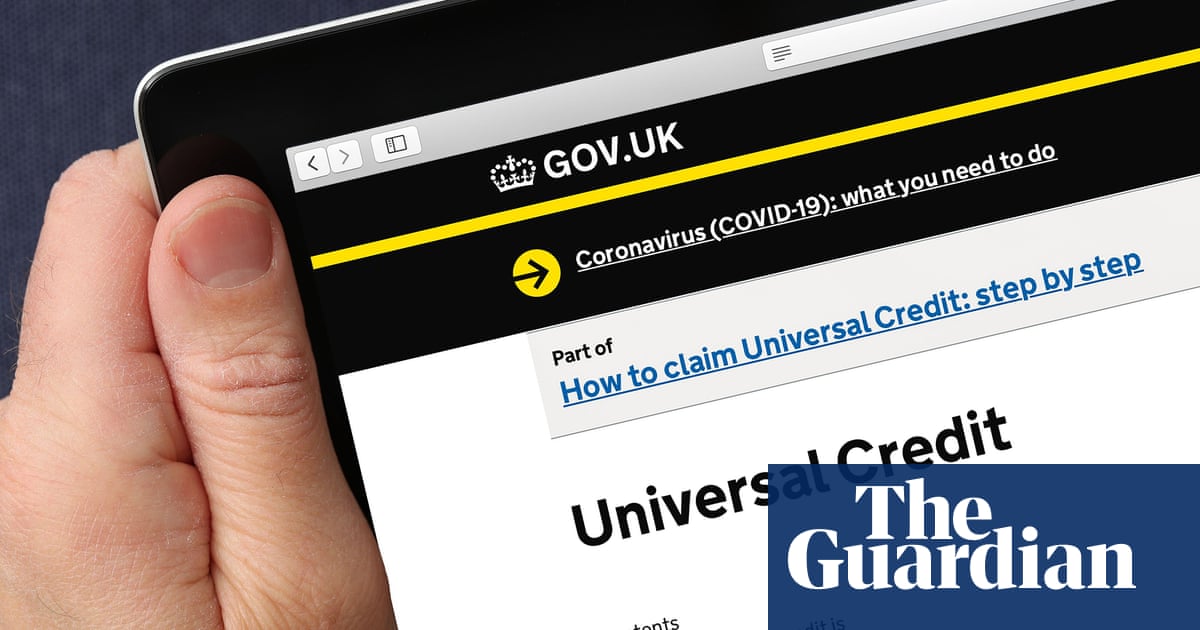
The work and pensions minister, Thérèse Coffey, has confirmed that the pandemic universal credit uplift of £20 a week will be withdrawn as planned at the end of September despite widespread public and cross-party opposition to the move.
Coffey told a committee of MPs that she would be writing to all 6 million universal credit claimants before the planned withdrawal, warning them that they would see an “adjustment in their payments”.
The government, which argues the uplift will no longer be needed as the economy opens up, was accused of risking putting low-income families’ living standards at risk, as households face rising inflation and the possibility of higher unemployment this autumn.
Boris Johnson later confirmed the move, telling MPs that as restrictions from Covid eased, his aim was to focus on moving people into better-paid work. “As we move beyond that, we have to have a different emphasis, and the emphasis has to be on getting people into work and getting people into jobs. That’s what we’re doing,” he told the Commons liaison committee, which brings together chairs from various subject-specific committees.
Stephen Timms, the Labour chair of the work and pensions committee, told Johnson that ending the uplift would leave jobless benefits at the lowest level in real terms for 30 years, and push 500,000 people below the poverty line. The prime minister replied: “I think that the answer to that is to get people into work.”
Asked by Timms if he would reconsider the plan, Johnson said all measures were kept under review. “But I’ve given you a pretty clear steer about what my instincts are.”
Labour is likely to try to force a Commons vote on the issue, hoping to capitalise on Tory backbench unhappiness at the cut. This week six Conservative former welfare secretaries wrote a letter to the chancellor, Rishi Sunak, calling for the uplift to be made permanent to protect low-income families and support the economy.
Jonathan Reynolds, the shadow secretary of state for work and pensions, said the cut would hit the lowest-paid hardest and damage the economic recovery. “There is near-universal opposition to this cut, including from prominent Conservatives. It is time the government saw sense, backed struggling families and cancelled their cut to universal credit.”
Coffey’s comments are first time the government has explicitly confirmed its intention, outlined in the budget in March, to cut basic universal credit rates back to pre-pandemic levels in the autumn, suggesting the Treasury has won the battle against extending uplift and the Department for Work and Pensions is resigned to the cut going ahead.
Coffey told MPs on Wednesday the government had honoured its commitment to extend the uplift for six months. Now the economy was opening up, she said, the focus of DWP support “should be strongly on getting people into work and jobs”.
Although there was no up-to-date robust data showing that claimants were coming off the benefit in significant numbers, internal DWP figures suggested there were 2.1 million job seekers on universal credit, down from 2.5 million in March, and this number was reducing week by week, she said.
This triggered a scathing response from Tory MP Nigel Mills: “I’m just trying to get my head around the fact you introduce a solution [the £20 uplift] to address a problem and then we remove the solution but we do not know if the problem has gone away because we do not have the data in time to know that situation we were trying to fix has changed or not.
“So we’ve decided in early July, based on data from March, that the temporary uplift we put in place in April isn’t needed from October? Is that a fair summary of the position?”
The Amber Valley MP went on: “It sounds like a dates-not-data decision – ‘We’ve chosen to end this at the end of September and we are not going to review that data at all – we are just going to assume everything will be OK.’”
Torsten Bell, chief executive of the Resolution Foundation thinktank, said: “There are difficult trade-offs with all major spending decisions, but taking a gamble with family finances and the strength of the recovery this autumn is the wrong choice.”
The £20 rise in universal credit and tax credits was introduced initially as a one-year measure in March 2020 to help new claimants adjust to the extra costs of the pandemic. Estimates suggest it helped 700,000 people stay above the poverty line during the pandemic. Surveys have shown the public support it being made permanent.












